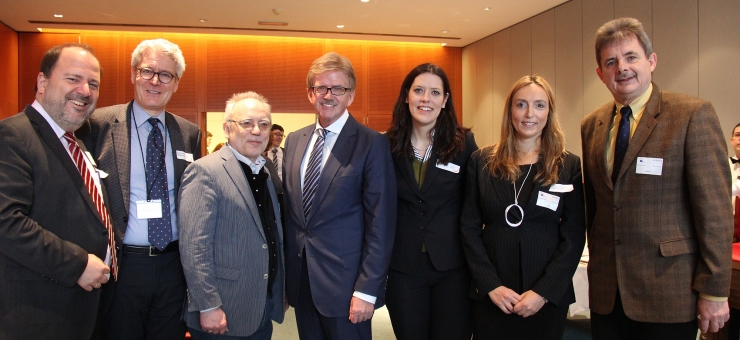News
European Sunday Alliance launches broadly supported interest group on work-life balance

On 3 March, the European Day for a Work Free Sunday, at the EU Parliament, and at the presence of MEPs from the main political groups, the European Sunday Alliance launched the first European Interest Group on WORK-LIFE BALANCE. The group supported by representatives of politicians, trade unions, employers, family and sports organizations and representatives of families and religious NGOs brought together, for the first time, 50 people to discuss how to ensure that EU legislation respects and promote workers' health and promote a better balance between family and private life and work. The event was held under the patronage of MEPs Evelyn Regner (S&D) and Thomas Mann (EPP).
Last year, many of the MEPs present signed up the European Sunday Alliance pledge . The Interest group sets the right forum for a discussion on how politicians can live up to their commitments and, to this end, work together with the European Sunday Alliance.
The issue of work-life balance, decent working hours and synchronized free time for all citizens in Europe is important for many reasons: at a personal level for social, cultural or sports activities, at a spiritual one as a day of rest and religious edification and above all to ensure an adequate time of rest. A lack of work-life balance often leads to absenteeism, psycho-social stress at work and burn-out and it has a clear negative impact on the economic productivity.
The relevance of the topic becomes even more evident as the European Commission refers in its ongoing public consultation on the review of the Working Time Directive to fundamental changes, which have occurred in the world of work and the economy and that impact on many aspects of the organization of working time. The supporters/members of the intergroup on work life balance believe that the current legislation does not sufficiently address the issue of the reconciliation of work and private life and does not ensure that workers can enjoy a common weekly day of rest. A thorough reflection and discussion on how to best ensure the protection of EU citizens’ work-life balance is therefore urgently needed.
This was the first of a series of events that will address the issue of work-life balance and that will continue for two years from now. The next meeting of the Interest Group will take place on 1 June 2015. Prof. Rosa from the German Friedrich-Schiller-University of Jena will be speaking about the acceleration of time under a sociological perspective.
About the European Sunday Alliance
The European Sunday Alliance is a network of national Sunday Alliances, trade unions, civil society organizations and religious communities committed to raise awareness of the unique value of synchronized free time for our European societies.
Committed to the issue of “work-life-balance” as a key role and the goal of enabling all European citizens to enjoy full participation in sports, cultural, social and religious life, the Interest Group brings together MEPs and representatives from civil society organizations and offers a platform for exchange and discussion.
For more information click here http://www.europeansundayalliance.eu/

